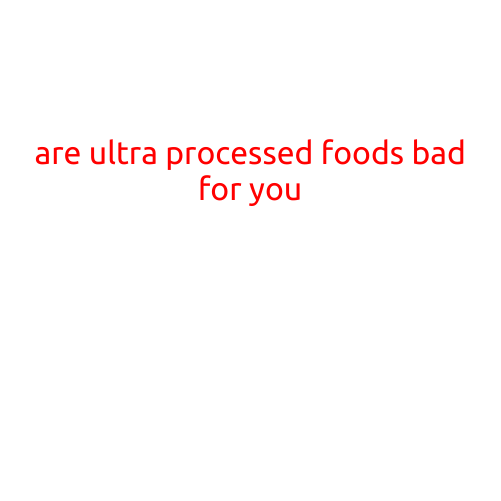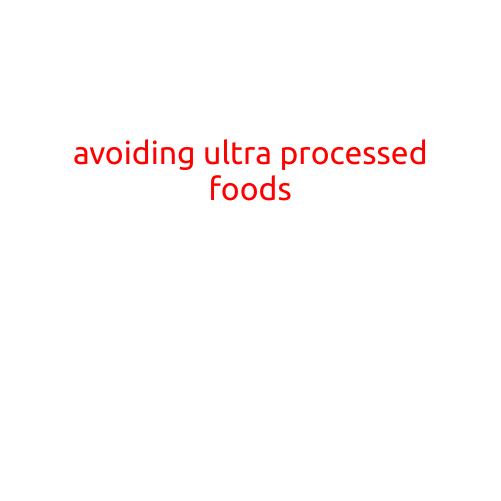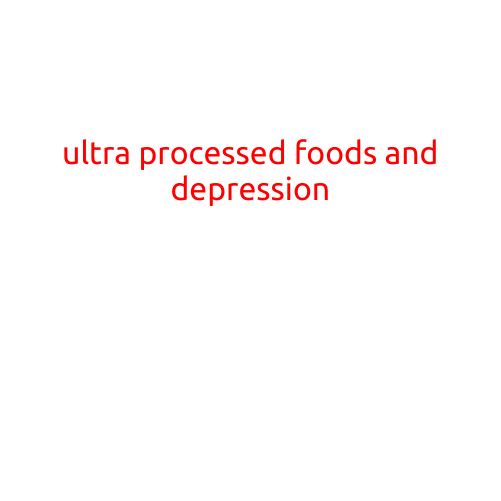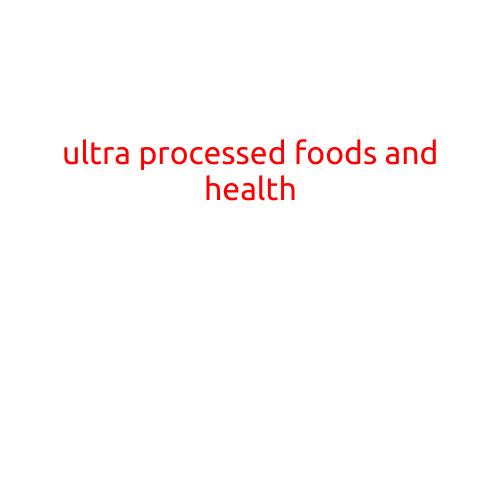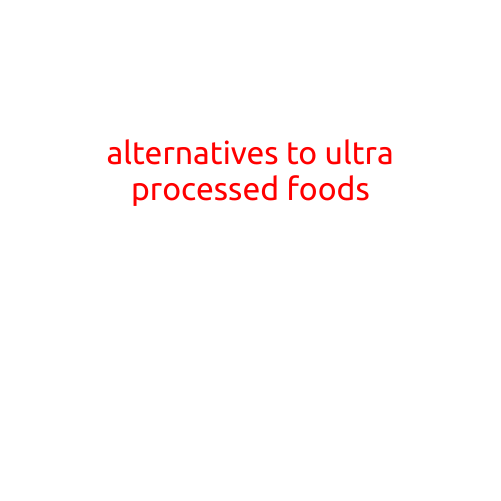
Alternatives to Ultra-Processed Foods: Embracing Wholesome Nutrition for a Healthier Lifestyle
In recent years, the term “ultra-processed foods” has become increasingly prominent in the nutrition world. According to the NOVA food classification system, ultra-processed foods are products that contain a high percentage of added sugars, refined carbohydrates, and unhealthy fats, and are often made with industrialized ingredients and manufacturing processes. Examples of ultra-processed foods include frozen meals, sugary snacks, and sweetened beverages.
While convenience and affordability may make ultra-processed foods appealing, a growing body of evidence suggests that consuming these foods can have negative impacts on both mental and physical health. What’s more, a diet rich in ultra-processed foods has been linked to a higher risk of chronic diseases, such as obesity, type 2 diabetes, and heart disease.
Given the numerous benefits of a wholesome diet, it’s essential to explore alternatives to ultra-processed foods. The good news is that making healthy substitutions is easier than you might think. Here are some alternatives to ultra-processed foods that can help you adopt a balanced and nutritious lifestyle:
1. Whole Grains Instead of Refined Grains
Ditch the white bread and sugary cereals for whole grain options like brown rice, quinoa, and whole wheat bread. Whole grains provide fiber, vitamins, and minerals, and can help lower blood sugar and cholesterol levels.
2. Fresh Fruits and Vegetables Over Canned and Frozen Options
While canned and frozen fruits and vegetables can be convenient, they often contain added sugars and preservatives. Opt for fresh or locally sourced options whenever possible. Try to include a variety of colorful fruits and vegetables in your diet to reap the benefits of essential vitamins and antioxidants.
3. Nuts and Seeds Instead of Processed Snacks
Nuts and seeds like almonds, cashews, and chia seeds make great snack options when consumed in moderation. They’re rich in healthy fats, protein, and fiber, and can help curb cravings and support weight management.
4. Homemade Meals Over Frozen Dinners
Cooking meals from scratch can be time-consuming, but it’s a great way to ensure you’re getting the nutrients your body needs. Try meal planning and cooking large batches of healthy meals that can be reheated throughout the week. Some easy and nutritious meal options include lentil soup, stir-fries, and roasted chicken with vegetables.
5. Water Instead of Sugary Drinks
Swap soda, sports drinks, and sweetened tea and coffee for water. Aim to drink at least eight glasses of water per day, and consider adding a slice of lemon or lime for some extra flavor. You can also infuse water with fruits, herbs, and vegetables for a refreshing and healthy twist.
6. Avocado Oil Instead of Vegetable Oil
Avocado oil is a healthier alternative to vegetable oil, which is often high in omega-6 fatty acids. Use avocado oil for cooking, dressings, and marinades to reap the benefits of its high smoke point and nutritional profile.
7. Greek Yogurt Instead of Processed Yogurt
Greek yogurt is a better choice than processed yogurt, which often contains added sugars and artificial flavorings. Look for plain, unflavored Greek yogurt and add your own honey, fruit, or nuts for a healthier dessert or snack option.
8. DIY Trail Mix Instead of Packaged Options
Many packaged trail mixes contain added sugars, artificial ingredients, and unhealthy fats. Make your own trail mix using rolled oats, nuts, seeds, and dried fruits to create a healthy and sustaining snack.
9. Herbal Teas Instead of Sugary Drinks
Sugary drinks like soda and sweetened tea can have negative impacts on oral health and contribute to chronic diseases. Try herbal teas like peppermint, chamomile, and hibiscus for a soothing and caffeine-free alternative.
10. Home-Cooked Desserts Instead of Packaged Treats
While packaged treats may be convenient, they often contain added sugars and artificial ingredients. Try baking your own desserts using wholesome ingredients like whole wheat flour, coconut sugar, and fresh fruits. You can also experiment with natural sweeteners like honey and maple syrup.
By incorporating these alternatives to ultra-processed foods into your diet, you can enjoy the benefits of a wholesome and nutrient-rich lifestyle. Remember to always read labels, be mindful of portion sizes, and prioritize whole, unprocessed foods whenever possible.
